Golden Treasury of Chinese Poetry in Han, Wei and Six Dynasties(Chinese-English)
Author:Xu Yuanchong
Publication date:2018-01-01
ISBN:9787508538952
Language:Chinese-English
Abstract:
Ancient Chinese classic poems are exquisite works of art. As far as 2,000 years ago, Chinese poets composed the beautiful work Book of Poetry and Elegies of the South, Later, they created more splendid Tang poetry and Song lyrics. Such classic works as Thus Spoke the Master and Laws: Divine and Huma...
Introduction
Ancient Chinese classic poems are exquisite works of art. As far as 2,000 years ago, Chinese poets composed the beautiful work Book of Poetry and Elegies of the South, Later, they created more splendid Tang poetry and Song lyrics. Such classic works as Thus Spoke the Master and Laws: Divine and Human were extremely significant in building and shaping the culture of the Chinese nation. These works are both a cultural bond linking the thoughts and affections of Chinese people and an important bridge for Chinese culture and the world. Mr. Xu Yuanchong has been engaged in translation for 70 years. In December 2010, he won the Lifetime Achievement Award in Translation conferred by the Translators Association of China (TAC). He is honored as the only expert who translates Chinese poems into both English and French. After his excellent interpretation, many Chinese classic poems have been further refined into perfect English and French rhymes. This collection of Classical Chinese Poetry and Prose gathers his most representative English translations. It includes the classic works Thus Spoke the Master, Laws: Divine and Human and dramas such as Romance of the Western Bower, Dream in Peony Pavilion, Love in Long-life Hall and Peach Blossom Painted with Blood. The largest part of the collection includes the translation of selected poems from different dynasties. The selection includes various types of poems, lyrics and Yuan, Ming and Qing dynasty songs. The selected works start from the pre-Qin era to the Qing Dynasty, covering almost the entire history of classic poems in China. Reading these works is like tasting "living water from the source" of Chinese culture. We hope this collection will help English readers "know, love and appreciate" Chinese classic poems, share the intelligence of Confucius and Lao Tzu, share the gracefulness of Tang Dynasty poems, Song lyrics and classic operas and songs and promote exchanges between Eastern and Western culture. This book is one of the 14 books of Classical Chinese Poetry and Prose, a translation of Confucian classics Thus Spoke the Master.
Book catalogue
封面
1 扉页
2 CONTENTS 目录
3 作者简介
4 Publisher's note
5 出版前言
6 PREFACE
7 Liu Bang (256–195 BC)
8 Xiang Yu (232–202 BC)
9 Lady Yu (?–202 BC)
10 Liu Che (156–87 BC)
11 Sima Xiangru (179–118 BC)
12 Li Yannian (?–87 BC )
13 Lady Ban
14 Xin Yannian
15 Su Wu (140–60 BC)
16 Anonymous
17 Cai Yan (c. 200)
18 Cao Cao (155–220)
19 Wang Can (177–217)
20 Chen Lin (?–217)
21 Liu Zhen (?–217)
22 Xu Gan (171–217)
23 Po Qin (?–218)
24 Cao Pi (187–226)
25 Cao Zhi (192–232)
26 Ji Kang (223–262)
27 Ruan Ji (210–263)
28 Fu Xuan (218–278)
29 Zhang Hua (232–300)
30 Pan Yue (247–300)
31 Shi Chong (249–300)
32 Lu Ji (261–303)
33 Zuo Si (250–305)
34 Zhang Han
35 Zhang Zai
36 Su Boyu's Wife
37 Liu Kun (271–318)
38 Guo Pu (276–324)
39 Wang Xizhi (321–379)
40 Xie An, Xie Lang, Xie Daoyun
41 Gu Kaizhi (345–406)
42 Tao Qian (365–427)
43 Xie Lingyun (385–433)
44 Bao Zhao (415–470)
45 Xie Tiao (464–499)
46 Xiao Yan (464–549)
47 Fan Yun (451–503)
48 Jiang Yan (444–505)
49 Shen Yue (441–512)
50 Liu Yun (465–511)
51 He Xun (?–518)
52 Wu Jun (469–519)
53 Wang Ji
54 Yin Keng (?–565)
55 Chen Shubao (553–604)
56 Xu Ling (507–583)
57 Wei Ding (515–593)
58 Wang Bao (513–576)
59 Yu Xin (512–580)
60 Yang Guang (569–618)
61 Folk Songs of Northern and Southern Dynasties
62 刘邦
63 项羽
64 虞姬
65 刘彻
66 司马相如
67 李延年
68 班婕妤
69 辛延年
70 苏武
71 无名氏
72 蔡琰
73 曹操
74 王粲
75 陈琳
76 刘桢
77 徐幹
78 繁钦
79 曹丕
80 曹植
81 嵇康
82 阮籍
83 傅玄
84 张华
85 潘岳
86 石崇
87 陆机
88 左思
89 张翰
90 张载
91 苏伯玉妻
92 刘琨
93 郭璞
94 王羲之
95 谢安 谢朗 谢道韫
96 顾恺之
97 陶潜
98 谢灵运
99 鲍照
100 谢朓
101 萧衍
102 范云
103 江淹
104 沈约
105 柳恽
106 何逊
107 吴均
108 王籍
109 阴铿
110 陈叔宝
111 徐陵
112 韦鼎
113 王褒
114 庾信
115 杨广
116 南北朝民歌
117 Theory on Literary Translation of the Chinese School
118 代后记:中国学派的文学翻译理论
119 版权页
120 封底
121
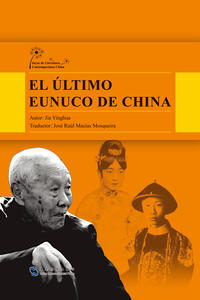
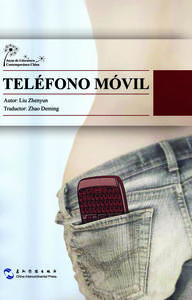
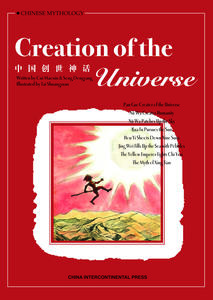
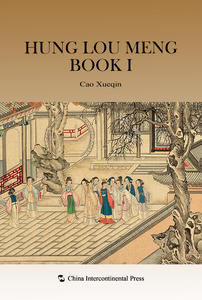
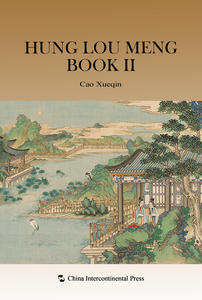
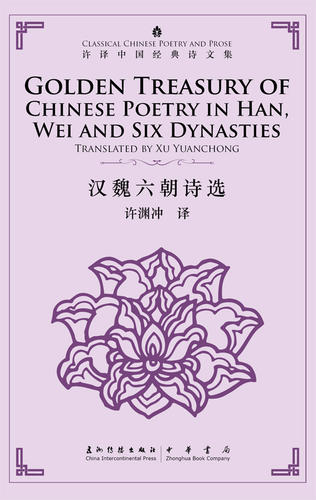
【Log in now】